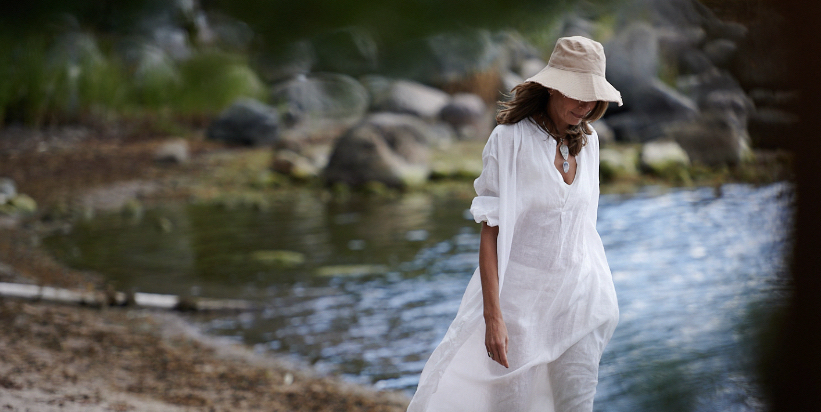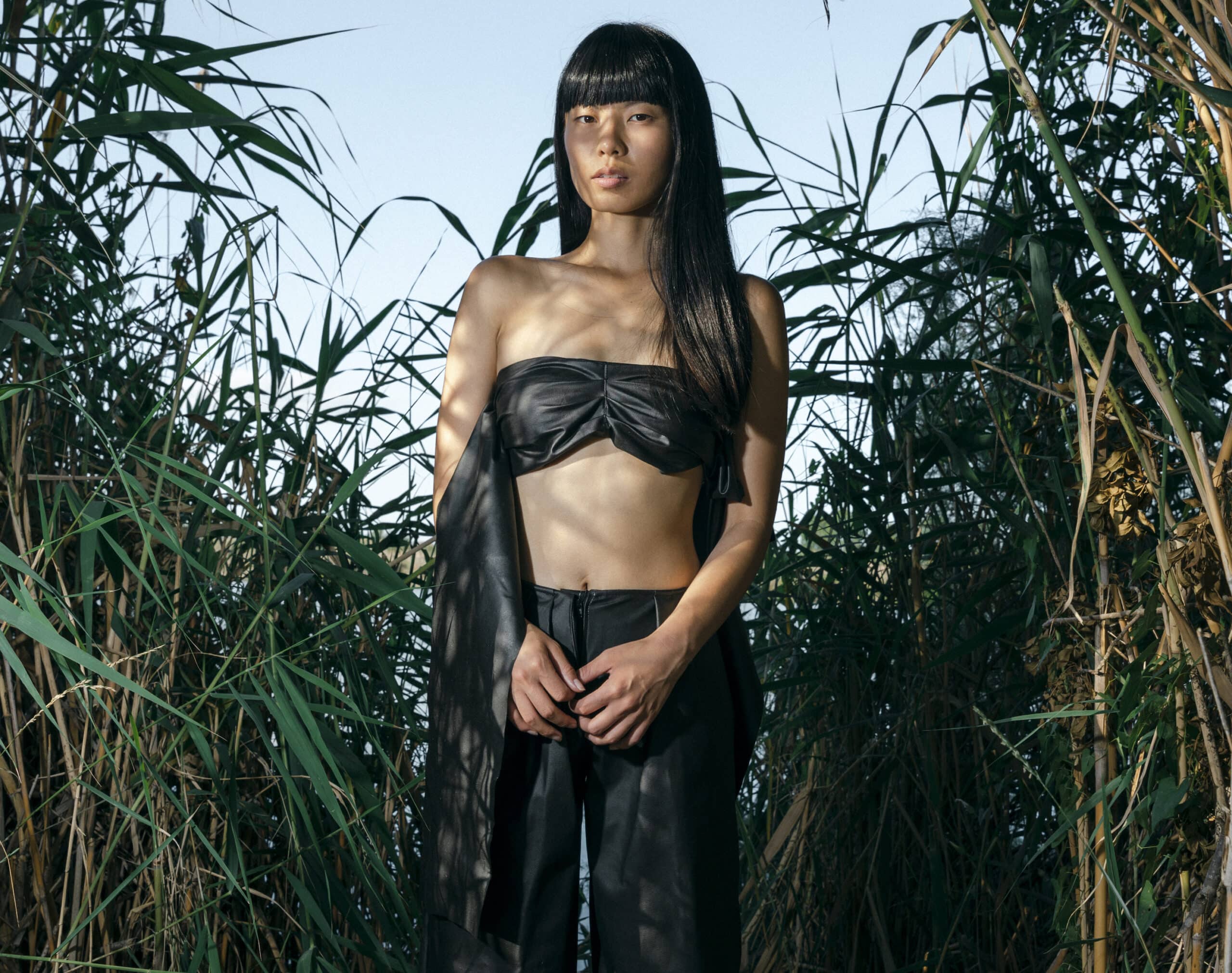Celia Ingesson is a seasoned professional in the fashion industry who made a conscious shift towards authentic sustainability many years ago. Her motivation stemmed from witnessing the often disturbing conditions within the industry—hazardous chemicals in textiles and dyes, pollution, and serious health risks faced by workers and consumers alike. With Swedish roots and a globally nomadic lifestyle, Celia is now living in Mallorca and has dedicated herself to fostering change.
“I believe that each of us can make a difference by making mindful choices—avoiding synthetic fabrics, which are essentially plastics that harm both the environment and our health.”

Photo :Johanna Gunnberg
Celia recommends using micro-pollution filters like the Guppyfriend wash bag, washing synthetic garments responsibly, and adopting more sustainable habits such as mending, buying second-hand, swapping clothes, and supporting eco-friendly brands.
“Together, through conscious actions, we can create meaningful impact before it’s too late.”
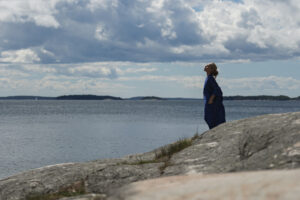
Photo : Jörgen Brennicke
How did you come to create Greeningline?
I founded Greeningline as a brand focused on plant-based colors and natural materials to offer clothing that is as toxin-free as possible, leveraging my industry knowledge. For me, it’s also important to share my experience through talks and writing to raise awareness about a topic the industry often prefers to hide: the toxicity in dyes, treatments, and materials, and how these impact the environment, workers’ health, and our own well-being.
Could you explain what Greeningline is all about?
Greeningline embodies my approach to authentic sustainability and slow design. Why use organic materials if the dyes and colors are toxic? Using natural pigments, I can achieve vibrant, beautiful colors that are machine washable and easy to care for. It simply takes more time to develop and costs more to produce than conventional clothing. I also collaborate with artisans who create handloomed pieces, such as Ikat and other traditional techniques, to elevate the collection.
“My goal is to preserve these ancient techniques and prevent them from becoming extinct.”
I don’t work with seasonal collections or sales; instead, I focus on small-scale production and designing with less specific sizing to reduce waste. The garments are delivered in cloth bags with cotton labels. I prioritize my relationships with suppliers, master dyers, and weavers, producing in Italy and Bali—close to the origins of the materials, plant dye factories, and artisan workshops. Everything is made to last, not only through the understated style but also by incorporating “luxury making” techniques like French seams, hand stitching, and intricate detailing.
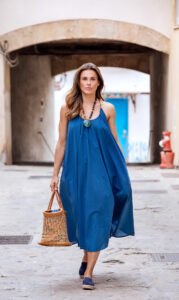
Photo : Johanna Gunnberg
Why is it so important for you to honor Mother Nature, and how do you contribute to this?
Honestly, it became very difficult for me personally to continue contributing to climate change, especially after witnessing firsthand how landscapes and even entire countries are affected by the textile industry—working with some of the largest global brands. My own health has also suffered, from childhood allergies to synthetic materials, dyes, and detergents, to the effects of handling samples and working in textile mills, dye houses, and manufacturing facilities. It became a mission for me to detox my wardrobe—and my life—and to do what I can to detox the supply chain.
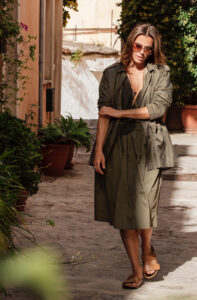
Photo : Johanna Gunnberg
A few words on your projects and dreams?
My dream is to sustain myself as a fully sustainable brand. Despite my experience, I find it challenging because certified organic materials, plant dyes, durable production, eco-friendly packaging, and shipping are all significantly more expensive. I want to keep my products affordable, which means maintaining small margins. I am entirely self-funded, and developing stable plant-based colors and materials has involved extensive investment and setbacks. Today, I hope that I and other sustainable brands will receive the support and recognition we deserve. It takes courage to be trailblazers in an industry often driven by profit and commerce, with little regard for the health of our planet or its people.
Words : Celia Ingesson / Anne-Sophie Castro
More information on ethical and sustainable fashion in our magazine

